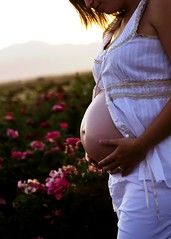Sun-shy mums may raise MS risk in babies

Children whose mothers had low exposure to sunlight during their first three months of pregnancy may have a higher risk of developing multiple sclerosis(MS) later in life, according to a study in Australia.
Experts suspect an expectant mother's lack of exposure to sunlight - the main source of vitamin D - may affect the foetus's central nervous system or immune system, and predispose it to developing MS later in life.
The study was conducted by Judith Staples and Lynette Lim of the Australian National University in Canberra and Professor Anne-Louise Ponsonby of the Murdoch Childrens Research Institute.
The finding was published in the British Medical Journal.
Researchers in their study reviewed birth records of 1524 MS patients born between 1920 and 1950, found that there were more born in the months of November and December.
This explains that their first trimester occurred in the winter months and expectant mothers are less exposed to sunlight.
Conversely, there were far fewer MS patients who were born in the months of May and June.
The researchers wrote that children born in the early summer months of November and December have a higher risk of 30 per cent getting MS. They add that vitamin D may be particularly important for the development of the foetus's central nervous system.
Their findings are supported by previous studies conducted in the northern hemisphere, which found more cases of MS among people born in May, whose mothers probably had little exposure to sunlight in their first trimester during the colder months of September to November.
MS, which is more prevalent in regions further away from the equator, can cause permanent disability with symptoms such as numbness or weakness in one or more limbs, partial or complete loss of vision, tremours and an unsteady gait.
According to the Murdoch Children's Research Institute it affects an estimated 18,000 people in Australia.
jm





















